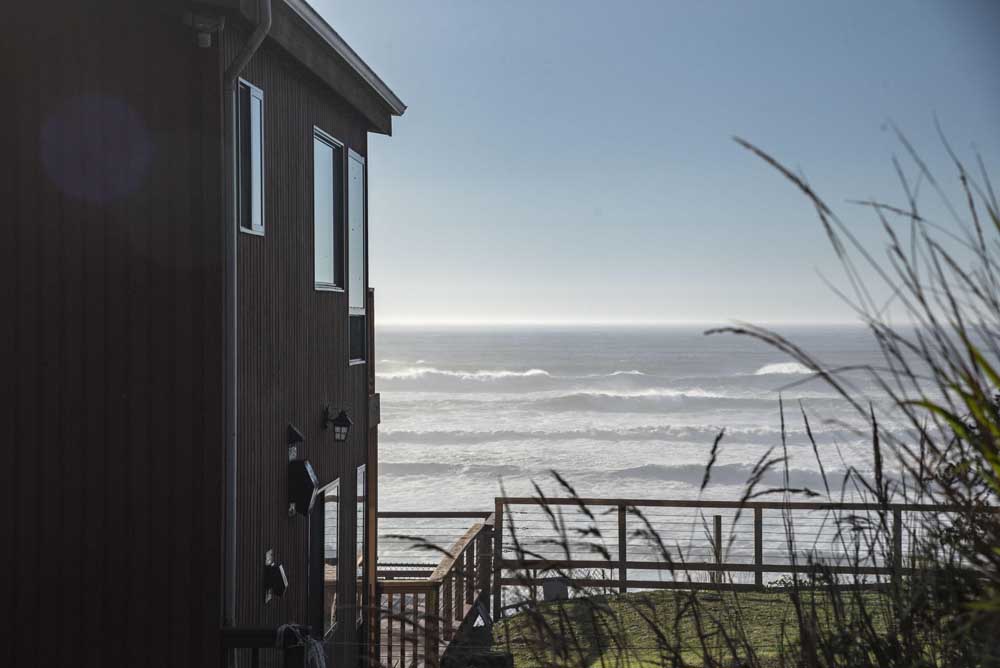After years of debate, county one step closer to a cap on vacation rentals
Published 1:15 pm Thursday, November 14, 2024

- Clatsop County is preparing to place a cap on vacation rentals.
Clatsop County could soon see a cap on vacation rentals, marking the end of a chapter in a yearslong debate over property owners’ rights and neighborhood concerns.
Trending
On Wednesday, county commissioners held the first public hearing on an ordinance that would establish a 10% limit on vacation rentals in unincorporated areas west of U.S. Highway 101, where the majority of vacation rentals are found. The cap would also apply to both sides of the highway in Arch Cape, which has among the highest concentrations of vacation rentals in the county.
Under the ordinance, existing permits could be renewed even if an area exceeds the 10% cap. New applications, however, would not be accepted in areas at or above the cap. The idea is to keep vacation rentals under control in areas that haven’t yet reached the cap and to slowly decrease the number of vacation rentals in areas that are already above the limit.
Vacation rentals in unincorporated areas only represent a fraction of short-term rentals in the county — most are found in cities, which have their own restrictions. But residents in neighborhoods like Cove Beach and Surf Pines have pressed the county to take action over quality of life concerns and other issues.
Trending
Over the past several years, county residents have expressed concerns over the impacts of vacation rentals on roads and other infrastructure. After a ballot measure that would have repealed an ordinance recognizing short-term rentals as a use in the county’s development code narrowly failed in 2023, commissioners regrouped to discuss the potential for a cap.
Commissioner Lianne Thompson, who represents South County, thanked constituents on Wednesday for providing written comments on the new ordinance.
“I want to thank everyone who wrote, people who cared so passionately about this,” Thompson said. “I want to assure them that I read every single one of these, often multiple times, and I tried to look for the best balance possible. I appreciate that they have engaged with the commissioners, staff and with each other to develop a better community solution.”
The percentage of vacation rentals in a given area is determined by comparing the number of vacation rentals in the area to the total number of single-family dwelling units. Those numbers will be updated annually per the county’s tax roll. According to figures included in the ordinance, Cove Beach and Arch Cape are the only two areas currently exceeding the proposed 10% cap — both at around twice their allowed maximums.
Permits can only be transferred by inheritance or under limited circumstances during the lifetime of the owner, including to a spouse or a trustee, limited liability company, corporation, partnership, limited partnership, limited liability partnership or other similar entity owned by the permit-holder.
During the hearing, Jeff Davis, a Cove Beach resident who was a co-petitioner for the 2023 referendum, commended community development staff for drafting the ordinance but raised concerns over the clause allowing permit transfers for corporations, calling it a “loophole.”
“We support allowing STR permits that have already been maintained by a family for two or more generations — heritage permits, if you will — to continue to be transferred by inheritance to family members,” Davis said. “What we don’t support is for an exemption to be made for developers or investors to capitalize on these properties at the expense of available precious housing for county residents.”
Gail Henrikson, the county’s community development director, clarified that a transfer can only be made to a trust during the lifetime of the permit-holder. The person doing the transfer is the only owner allowed.
“So it’s a very limited loophole,” Henrikson said.
The county will hold a second public hearing on the ordinance in December before an expected vote. Henrikson added that the Board of Commissioners will also consider a short-term rental permit fee increase as a separate agenda item early next year.









